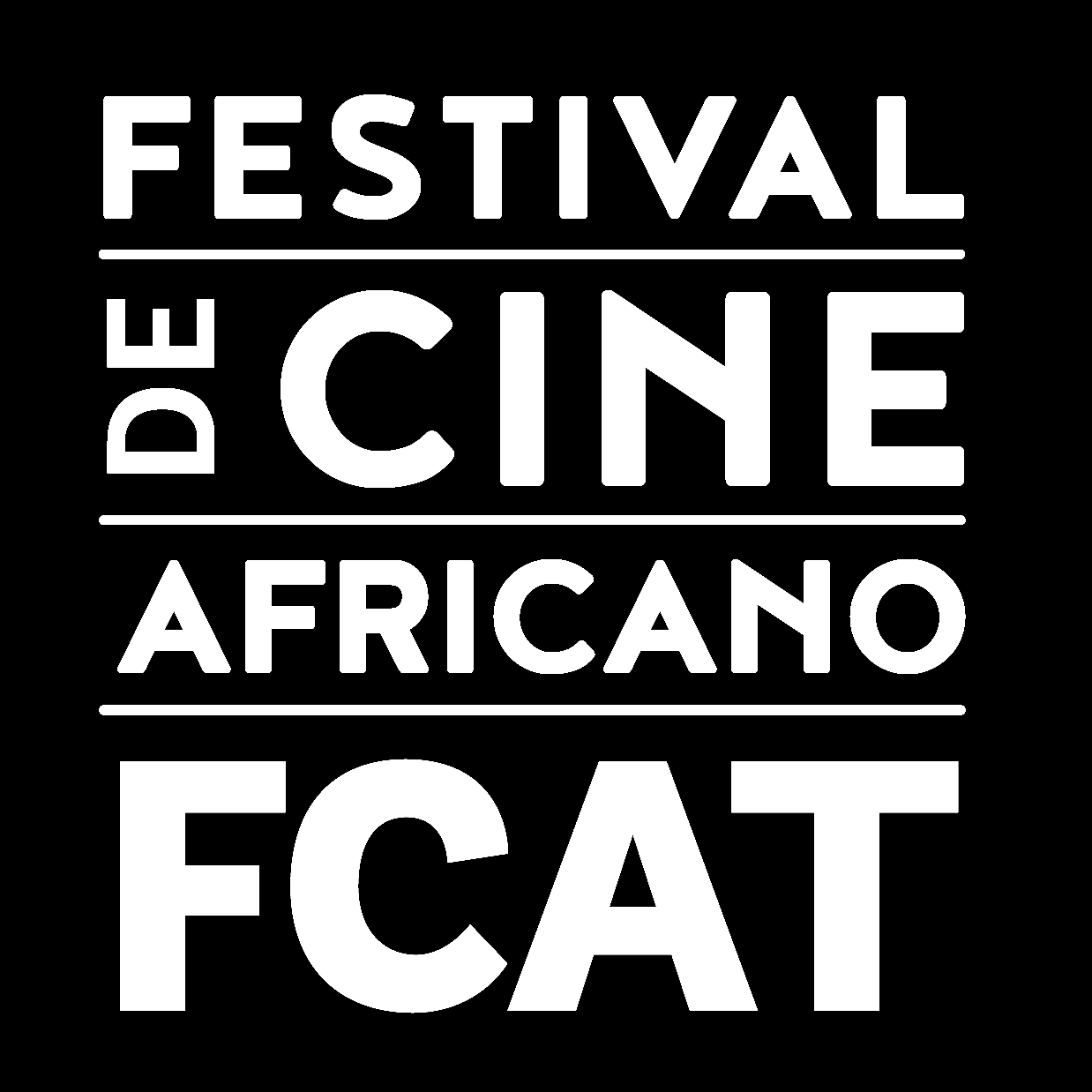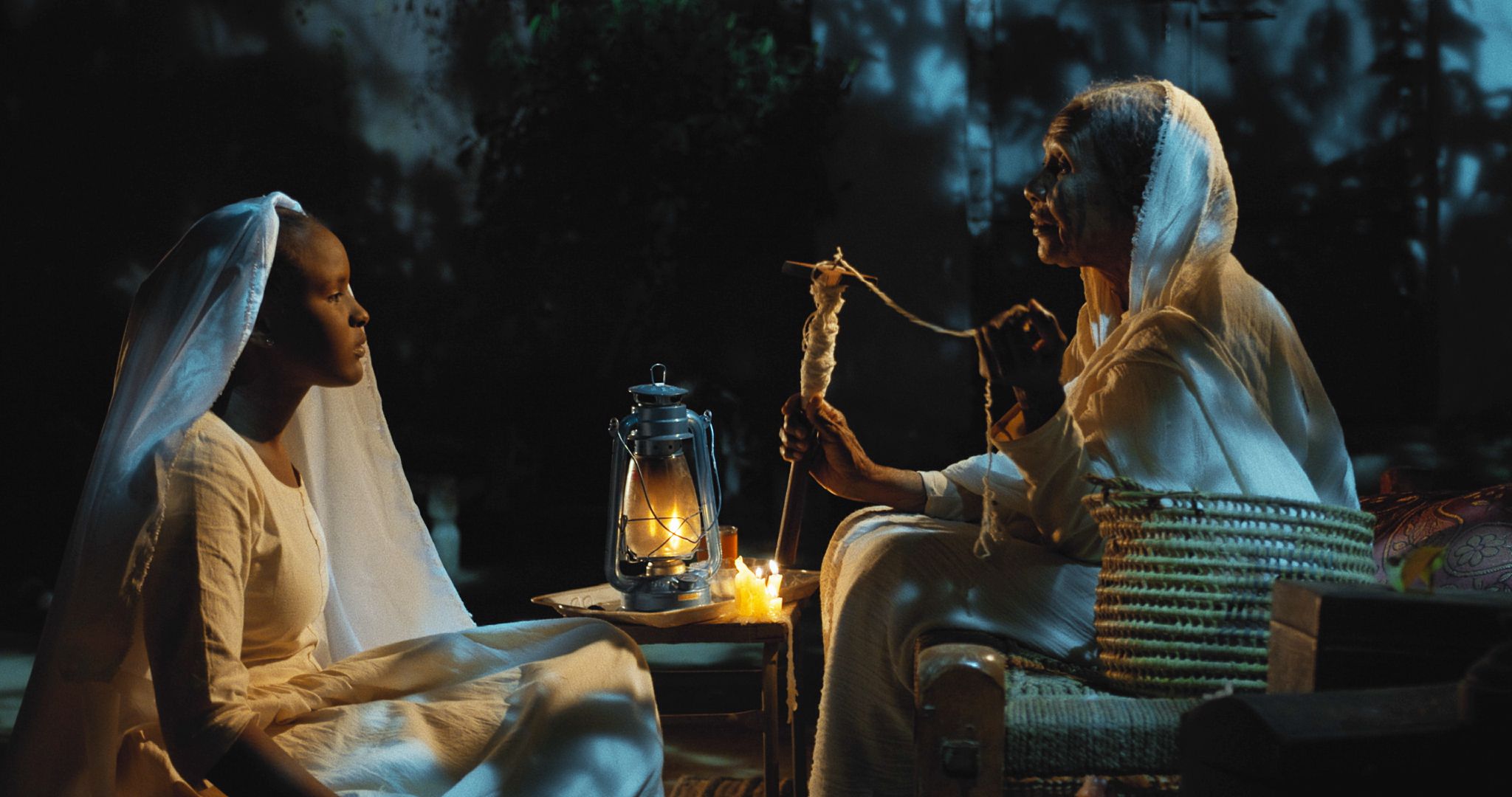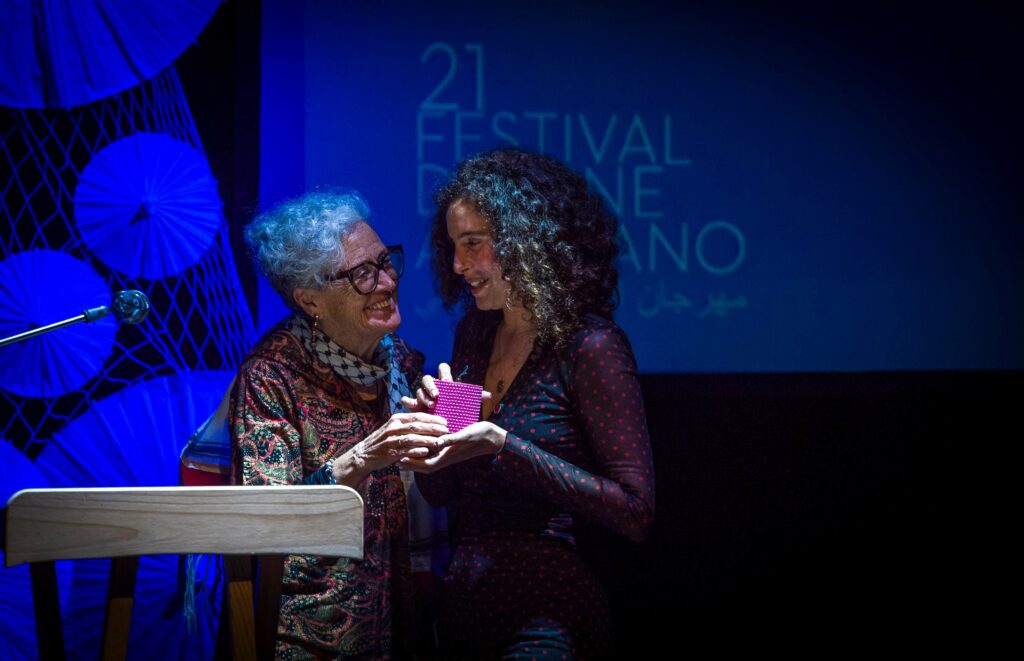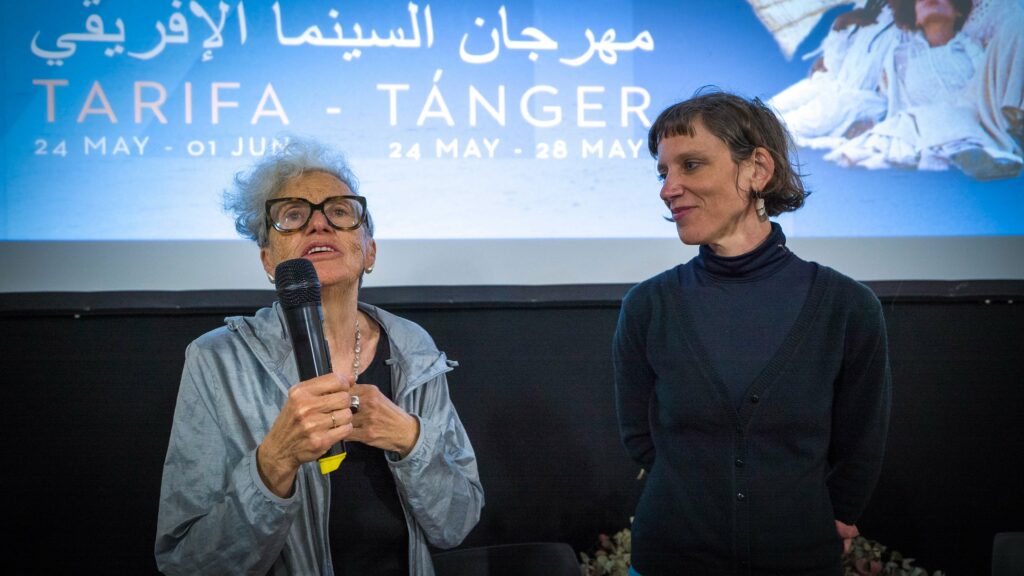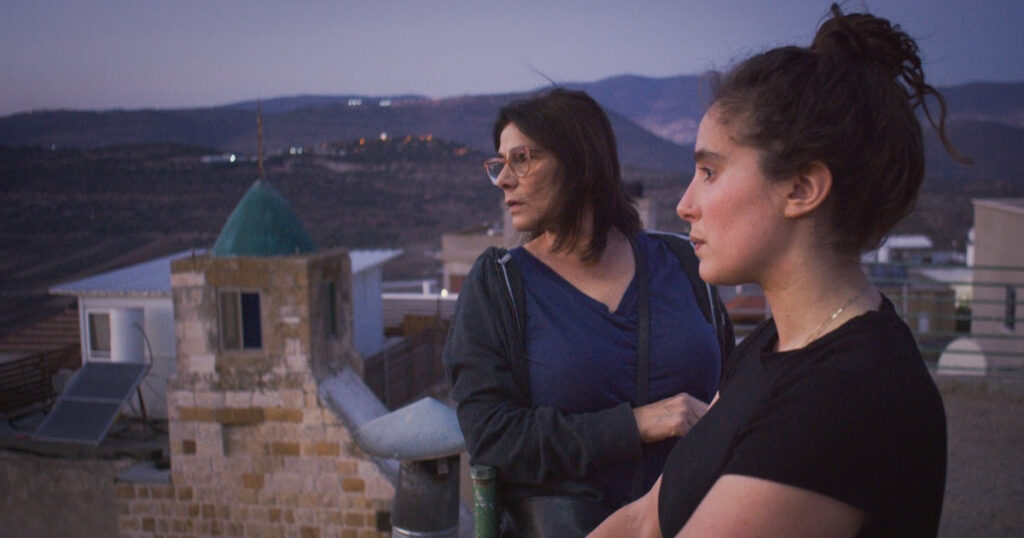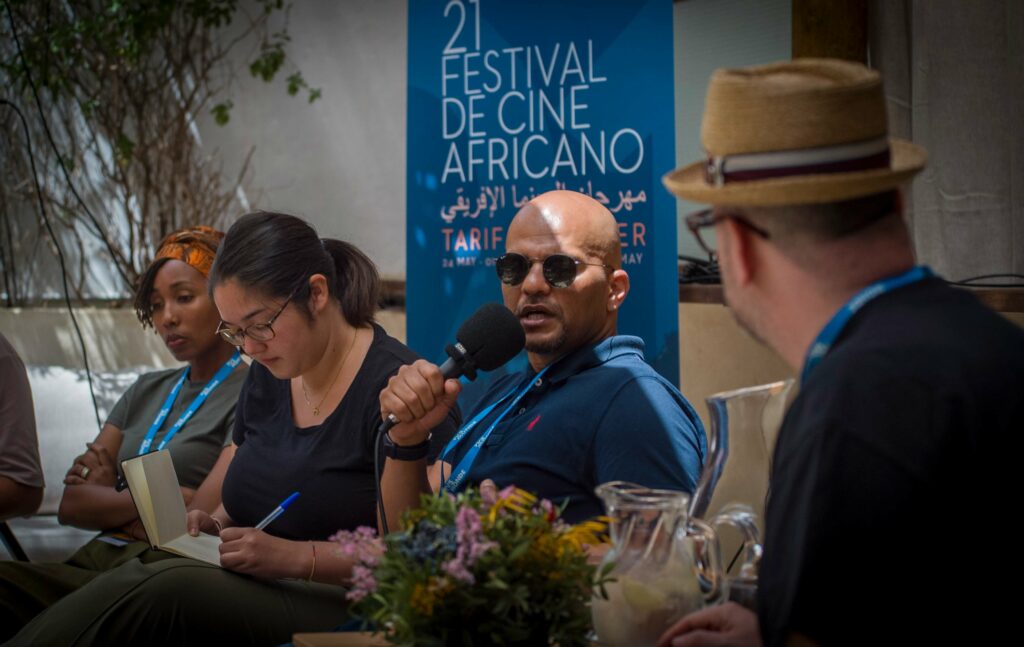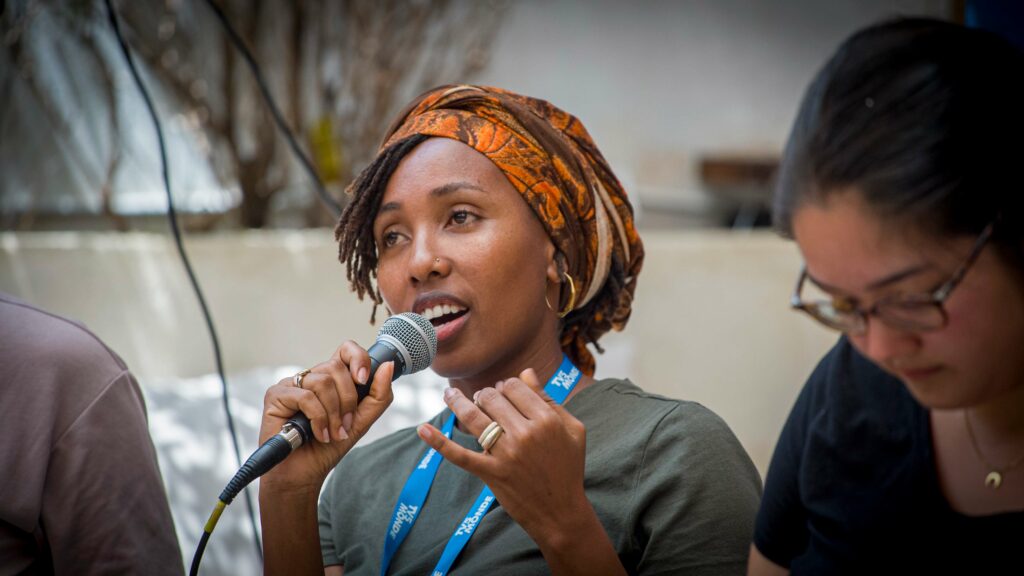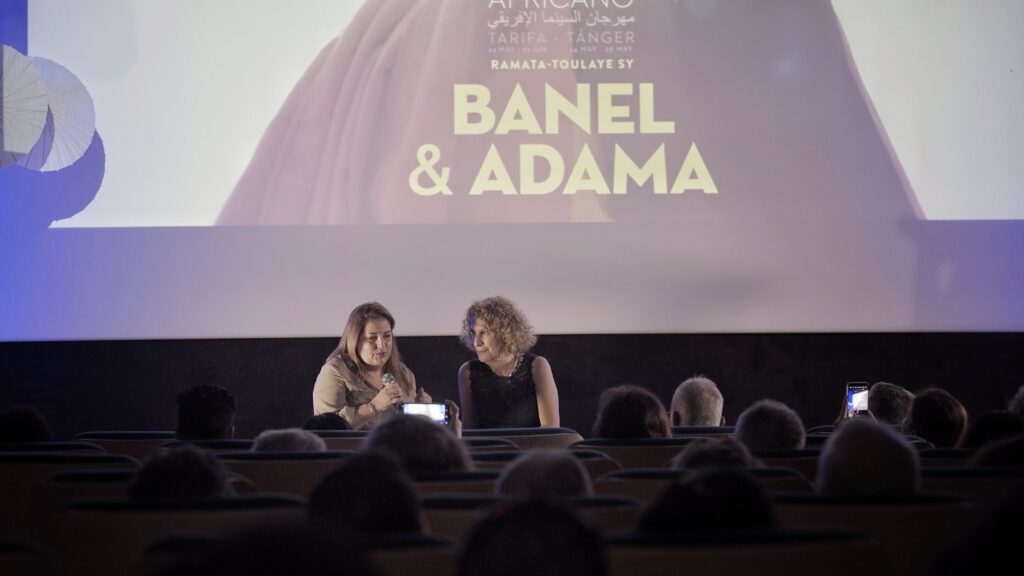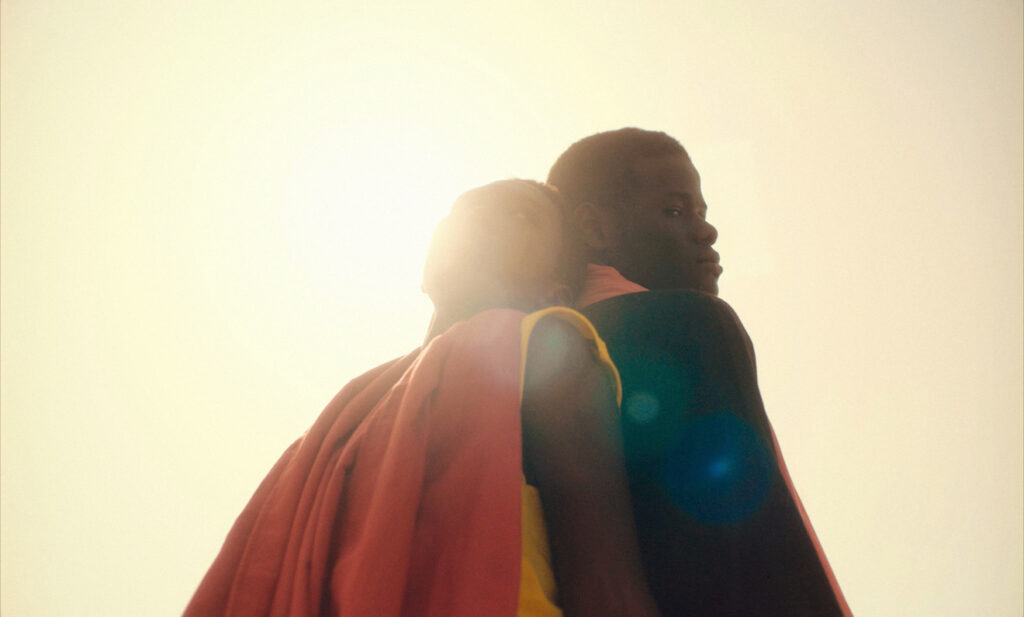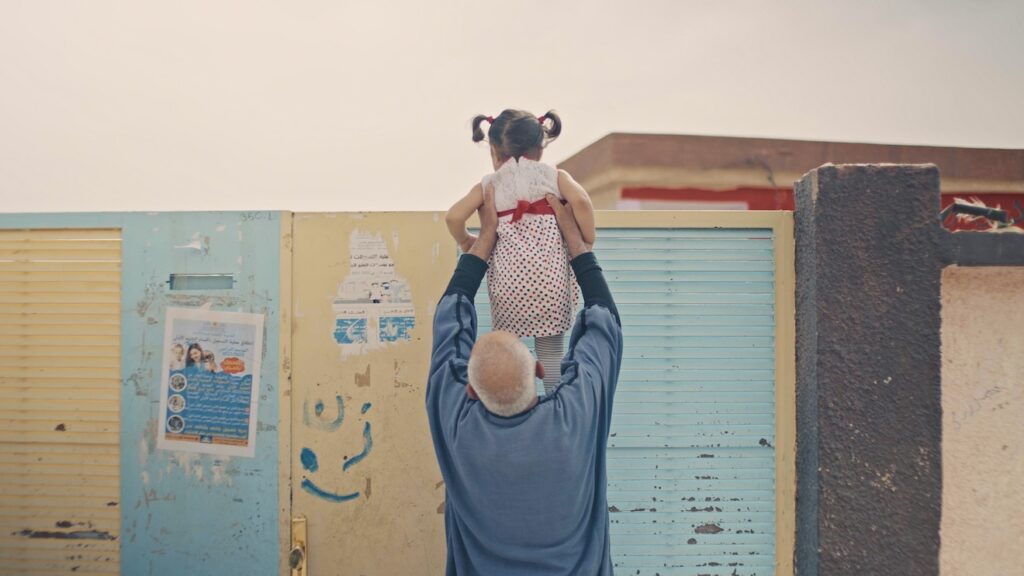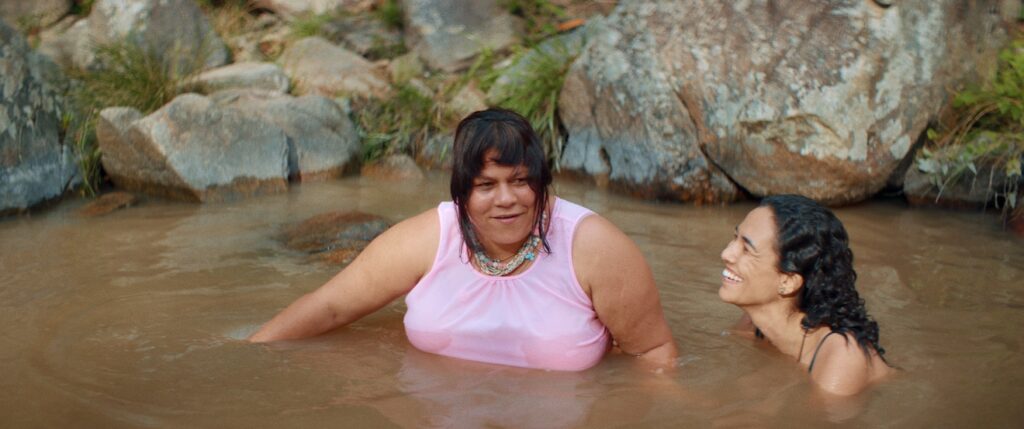The short film has pride of place at FCAT, which, along with Long-sightedness, is one of the two competitive sections. This year we have fifteen outlooks, fifteen ways of relating diverse realities with powerful and lucid voices which are capable of revealing so much in so little time. African countries such as Sudan, Rwanda, South Africa, Egypt, Morocco, Somalia, Cape Verde, Algeria, Nigeria and Tunisia join Europeans France and Portugal to make up this section. Let’s take a look!
1. Vulnerable women and empowered matriarchs
The journey begins with Al Sit (Sudan), directed by Suzannah Mirghani. In a village in Sudan dedicated to the cultivation of cotton, 15 year old Nafisa is madly in love with Babiker, but her parents have promised her to Nadir, a young Sudanese businessman who lives abroad. On top of that, Al-Sit, Nafisa’s grandmother and the powerful matriarch of the village, also has plans for Nafisa.
This is a Sudanese story about women, both the helpless and the powerful. In many Sudanese villages, the matriarch is revered and respected and gains social power through age and experience. The young girls, on the other hand, are more vulnerable. This film explores both extremes of the social chain and how these roles may be changing in an ever-modernising world. Everyone has their own selfish reason for wanting, or not wanting, Nafisa’s arranged marriage to take place; everyone but the future bride.
“I knew a lot of young girls like Nafisa, teenagers who live on the margins of their own lives, observing in silence as others make important decisions in their name. Many girls don’t stand up for themselves because they believe they have no other option. In this film, I explore the possibility of a girl making a statement against the odds. It may seem a simple statement: choosing who to love”, says the filmmaker, who will also be present at the round table “Images of Sudan” on the 29th of May.
2. Love and homophobia in the verses of René Char
Baltringue (France), by Josza Anjembe, is the director’s second film and was nominated at the Cesar awards 2021 for best short film. Josza Anjembe films the physical and psychological entrapment of a prey named Issa, and an immersion in movement in the prison world. A few days before she is due to be released, Issa meets Gaëtan, a new prisoner who is a follower of the verses of René Char. Fearful of his arrival, the young man is also accosted by the homophobia that reigns inside the prison walls.
3. Women’s bodies are always at risk
Cause of death (South Africa), by Jyoti Mistry, premiered at the last Berlinale. The powerful statement “Women’s bodies are always at risk” forms the basis of this film by the South African director. An autopsy report describes the state of a lifeless body, but does not take into account the structural and recurrent violence that femicide wreaks on the female body.
Through the use of archive footage, animation and a poem voiceover, an experience of physical violence against women is constructed. Jyoti Mistry was a resident artist at the Netherlands Film Academy and at California College of the Arts in San Francisco, and was a member of the International Short Film Jury at the 68th Berlinale. She is now a professor of cinema at the University of Gothenburg.
4. The first short by the Rwandan director, which premiered in Locarno
Fish bowl (Rwanda), by Ngabo Emmanuel. After arguing with his uncle on the eve of his mother’s burial, a young artist finds himself invaded by unexpected feelings for a close friend. Ngabo Emmanuel (known as Ngabo Wa Ganza) is a filmmaker and visual artist who lives in Kigali, Rwanda. Having studied history at secondary school, historical and cultural references are an important influence in his creative process. He is also very influenced by local artists who put their personal experiences into their work. Fish Bowl is his first short film.
5. Racism towards sub-Saharans from Arabic countries
Henet Ward (Egypt), by Morad Mostafa, tells the story of Halima, a Sudanese woman living in Egypt who earns her living doing henna tattoos. She travels to Giza for work, to tattoo a soon-to-be bride, accompanied by her seven-year-old daughter Ward, who goes for a walk to explore the neighbourhood. Morad Mostafa (1988), studied film directing in Cinema Palace and at various cinema workshops. He has been working in the film industry since 2010 as assistant director. In 2019 he wrote and directed his first short film, Henet Ward.
6. The Palme d’Or winning short at Cannes
I am afraid to forget your face (Egypt/France), by Sameh Alaa. Far away from the woman he has loved for 82 days, Adam is willing to do anything to erase the distance that separates them. Sameh Alaa (Cairo, Egypt. 1987) studied German literature at the University of Cairo. Before moving to Europe, he worked as an assistant director for advertising and feature films. In 2016, he finished his master’s degree in cinema at the EICAR in Paris. His first short film, Fifteen (2017), premiered at the Toronto Film Festival and received several awards around the world. I am afraid to forget your face became the first Egyptian film in 50 years to be selected for the Official Short Film Section at Cannes 2020. Alaa is currently working on his first feature film.
7. The producer of Sofia (Meryem Benm’Barek-Aloïsi) arrives with a Moroccan short
Le Départ (Morocco), by Saïd Hamich Benlarbi, transports us to Morocco and the year 2004. 11-year-old Adil spends his summer playing with his friends and waiting for the Olympics to see his idol, middle-distance runner Hicham El Guerrouj, compete. However, the arrival of his father and brother who have come from France to spend a few days in Morocco, will change his life forever. Saïd Hamich Benlarbi was born in Morocco in 1986. He is the executive producer of various feature films, including Neither Heaven nor Earth by Clément Cogitore and Sofia by Meryem Benm’Barek. He has also produced over 30 short films and several feature films, including Much Loved by Nabil Ayouch (as co-producer). His film Return to Bollene was awarded the Contraband Grand Prix at FIFIB 2017.
8. A little gem from Somalia
From Somalia comes Life on the Horn, by Mo Harawe. Not many films are made in Somalia, which is why we shouldn’t miss the opportunity to see this fantastic short film. For more than a decade, toxic waste was illegally dumped along the Somalian coast. The earthquake and tidal wave of 2004 damaged the containers, spreading the waste and causing widespread illness. Many people abandoned their villages, but some remained and had to face the consequences.
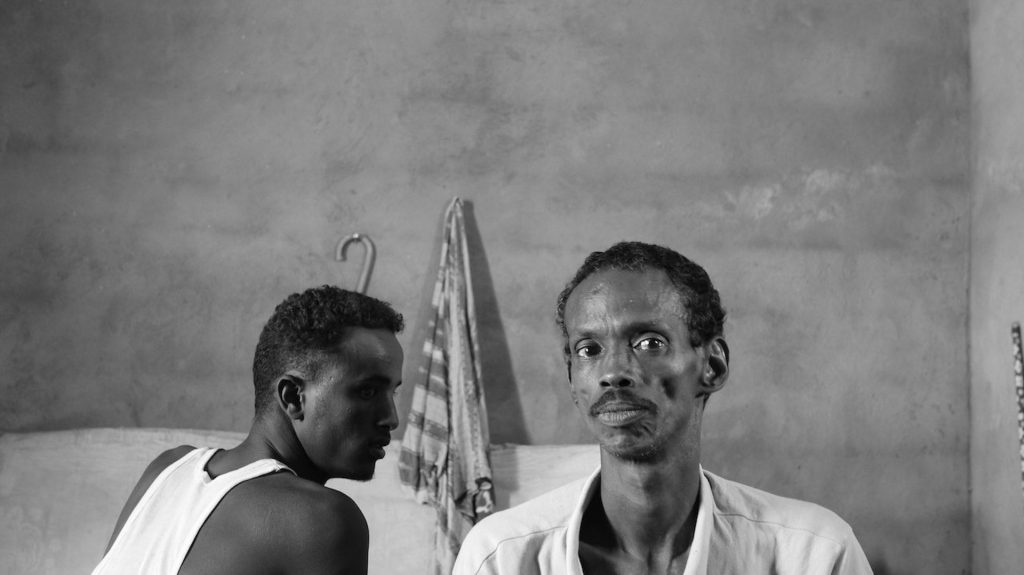
Fotograma de Life on the horn
How can such a “slow” catastrophe be portrayed on film, with causes and effects that extend the length of several human lives? Life on the Horn depicts it in an elliptical, minimalistic way, almost without words and finding precise and sensitive images to show this chronic violence in looks, gestures, and sceneries. The director Mo Harawe was born in Mogadishu and has been living in Austria since 2009. He portrays an environment which is practically engraved in the bodies of its residents, in the breathing difficulties and the omnipresent feeling of abandonment. Life on the Horn is a political narrative in the form of a duel: with the minimum of media, the film manages to make the incomprehensible comprehensible. (Nikolaus Perneczky)
9. A spiritual journey and a painful bond with the land
Nha Mila (Cape verde/Portugal), by Denise Fernandes. After 14 years away from her native country, Salomé must return to Cape Verde to visit her dying brother. On the way to Lisbon airport, a cleaner named Águeda recognises her as Mila, her childhood friend. Águeda invites her to come to her house rather than waiting out the long layover in the airport. The neighbourhood takes Mila on a spiritual journey, awakening a painful bond with her homeland.
Denise Fernandes was born in Lisbon in 1990 to parents of Cape Verdean origin, and grew up in the south of Switzerland. In 2011 she received her degree in film production and direction from the International Conservatory of Audiovisual Sciences of Lugano (CISA). The same year, her diploma film Una Notte premiered at the 64th edition of the Festival of Locarno. From 2011 to 2013, she studied at the International School of Cinema and TV (EICTV) in Cuba, where she directed the shorts Pan sin Mermelada, which was nominated for the Upcoming Talent award at the Festival de Solothurn, and Idyllium, which won awards at the Winterthur International Festival. Hanami was selected among 70 projects for the Solothurn Talent Lab 2016 and won the award for best first film from the Swiss Society of Authors (SSA).
10. A short from the Collective Surreal16
Rehearsal (Nigeria), by Michael Omonua tells the story of a group of actors rehearsing a play in the National Theatre of Nigeria. The actors are playing the parts of a religious group who are rehearsing a show. How can a miracle cure be dramatised? They carry out castings, they try different approaches and hone their performance. The lines between church and theatre, between faith and credibility, begin to blur.
Michael Omonua received his degree in cinema production at the University of Creative Arts in Farnham, Surrey, and since then has written and directed short films in the UK and in Nigeria. His shorts have varied influences, from the humanist cinema of Ray, Ozu and Bresson to the experimentation of French New Wave directors. Working in Nollywood, Nigeria’s film industry, Omonua was disillusioned with the number of ridiculous comedies and wedding films which saturated the market. He founded, with two other Nigerian filmmakers CJ Obasi and Abba Makama, the Collective Surreal16. His mission is to change the face of Nigerian cinema, inspired by the Danish movement Dogma 95.
11. The search for a father through the eyes of an Algerian director
Nour (Algeria), by Rim Nakhli, comes to Tarifa following visits to Locarno, Egypt, and the American Film Institute Festival. Nour and Adem set off in search of their father, whom they haven’t seen for a long time. Eager to meet him, they cross the city to get to the meeting place. But their father doesn’t show up. Nour is one of those shorts that demands rights and freedom. The right to find a path, and the freedom to fail.
12. Ilias El Faris, member of the Long-sightedness jury and director in Africa Shortly
Sukar (Morocco), by Ilias El Faris. On the beach in Casablanca, two teenagers discreetly express their desire for one another. Children and adults look on. A fight draws their attention away from the young couple. His first short film Azayz, shot on super 8mm in Taghazout, was selected for various international festivals and won the international jury award at Doclisboa 2016. In 2017, Ilias shot Roujoula in Casablanca, which was selected for the international competition of the Clermont-Ferrand Film Festival and awarded the Short Grand Prix, among others, at the 40th edition of Cinemed.
For the collection L’Animal, commissioned by CNAP (Centre National des Arts Plastiques) and GREC (Groupe de Recherches et d’Essais Cinématographiques), Ilias directed Aïn Diab in March 2019, which was screened at the Côté Court Festival. Shot the same year, on 16mm, on the beach in Casablanca, Sukar is his latest fiction film. He also co-wrote the short Le Petit, directed by Lorenzo Bianchi, which won the awards “l’éventuel hérisson bleu” (theatre) and “mirroirs étendus” (lyrical creation).
13. The shadows of a city and its ghosts
Into the Night, (Algeria), by Fayçal Hammoum. As night falls in Algiers, Louisa emerges from the exit of a dingy station in the city centre. She walks along, putting up ‘Missing’ posters as she goes. Like a ghost, she is absorbed into the darkness of the city. In the alleyways of the capital, a long night’s wandering begins.
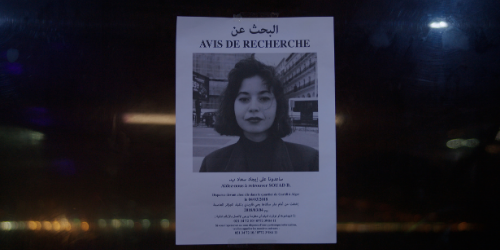
Fotograma de Toute la nuit
14. Transexuality in Tunisia
This day won’t last (Tunisia), by Mouaad el Salem. There is much at stake: article 230, a law created in Tunisia during French colonisation, criminalises homosexuality and is actively employed to abuse, imprison and harshly discriminate against LGBTQ people who live there.
Mouaad el Salem’s debut film is a vital and breathing claim to existence. In the words of the film, “still, I will continue to record and send materials to my friends who will help me to get my message across”. These materials—collected since 2017—result in a film which is not only a record of life lived and living, but also an act of passing on, to friends; an act of care and support between a community.
Both a personal portrait and a collective one, it is not clear who speaks and who is being filmed, where the account of one life ends and another begins. Close-ups on bodies, gestures, clothing, jewellery and domestic spaces express and document moments of freedom lived secretly in daily life. The subjects are seen, yet individually unidentifiable. Their safety is vitally important. The danger of recording and defining these images of joy and freedom, as well as the risk of being caught claiming this existence, is poignantly present throughout the film.
Weaving together video fragments and still black and white images, both intimate and diaristic, and collective and public, This day won’t last is a poetic and intuitive documentary. Footage of a fig tree being uprooted resonates with the complex question of what it means to leave Tunisia for the country’s young LGBTQ people. A cat is lovingly held and photographed, looking calmly into the flash of the camera; a trusted witness. Curtains and domestic textiles hang and breathe in the breeze as lungs, the ocean gives and pulls back. Life can’t be crushed, there is space here to live, to dance, to record, be seen and to dream. —Christina Demetriou
15. Animation is also part of Africa Shortly
Vanille, by Guillaume Lorin. Vanille, a young Parisian girl who has recently arrived in Guadeloupe, is plunged into an adventure tinged with mystery, meeting colourful characters and finding a magic flower. Her holidays promise to be rich in twists and turns!
